A Brief History of Committees
Since the inception of the present bicameral Tasmanian Parliament in 1856, there have been three types of committees that can be broadly identified as: standing committees, select committees and sessional committees. The essential in-depth review function of committees remains unchanged, although operational changes have occurred with the gradual utilisation of electronic technologies.
Standing Committees
The Parliament has three joint standing committees that are established by statute for the life of a Parliament, comprising Members of both Houses.
- The Standing Committee on Public Works, established pursuant to the Public Works Committee Act 1914;
- Subordinate Legislation, pursuant to the Subordinate Legislation Committee Act 1969; and
- Public Accounts pursuant to the Public Accounts Committee Act 1970. The Committee of Public Accounts, however, existed as a House of Assembly standing committee prior to this Act from 1862 (see Historical Public Accounts Committees- 1862 Onwards for further details).
Each House also establishes its own standing committees on Printing, Privileges and Standing Orders.
Select Committees
Each House may appoint select committees (which inquire into a particular matter and cease to exist upon the presentation of a report) from time to time. In some instances, joint select committees (with Members from both Houses) have been appointed.
Estimates and Government Businesses Scrutiny Committees
Budget Estimates Committees have also been established annually, since 1994 and 1998 for the House of Assembly and Legislative Council respectively. Government Businesses Scrutiny Committees are established annually, since 1996 and 1999 for the House of Assembly and the Legislative Council respectively.
Sessional Committees
Committees have been routinely appointed for each Session of Parliament to carry out certain internal oversight and housekeeping functions. Specifically, these are the Joint House Committee, which oversees the administrative functions of the Parliament building and grounds; and the Joint Library Committee, which oversees the activities of the Parliamentary Library.

